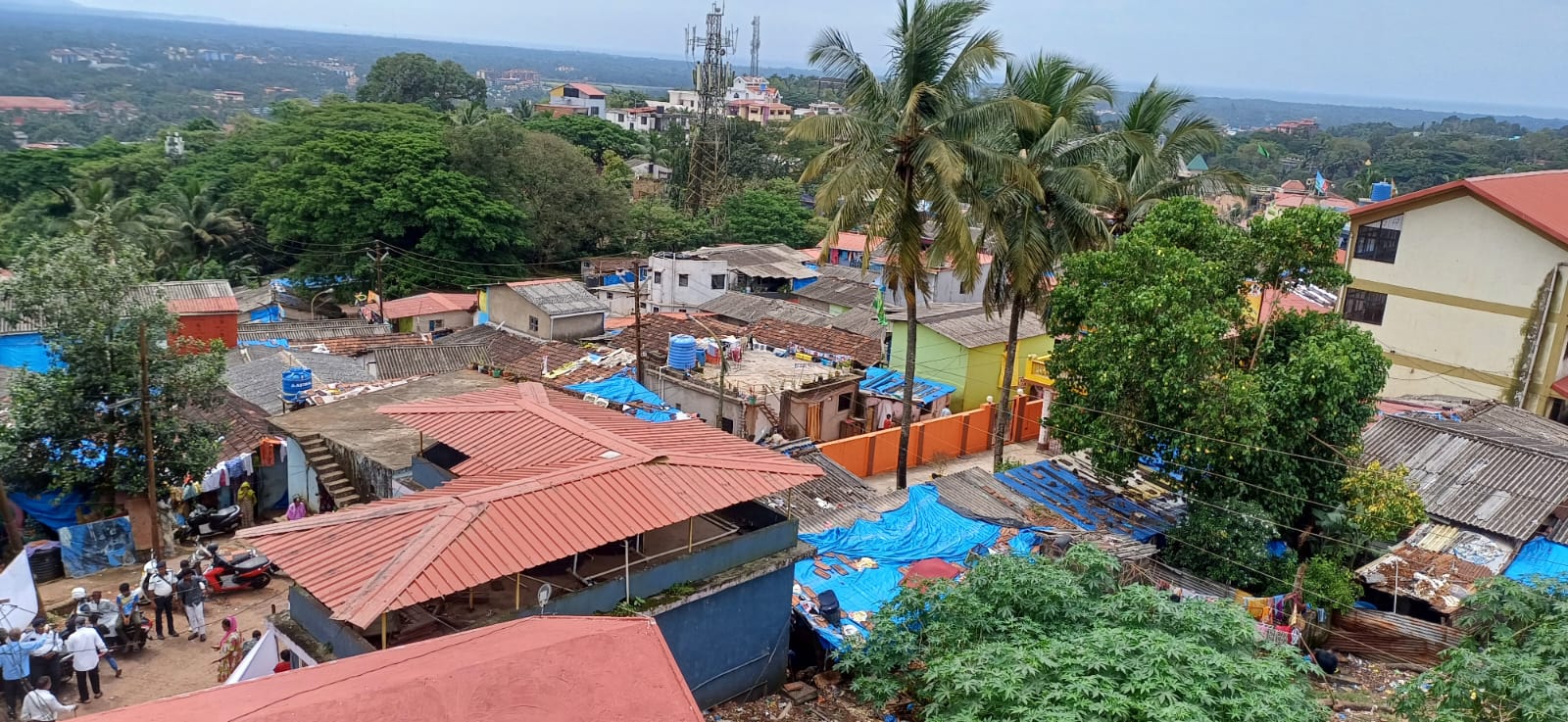The legality of the Mhaje Ghar Act will be tested in court; the larger issue remains: should the law make the illegal legal?

In the days gone by, nearly two generations ago, when the tenancy laws of the 1960s and 1970s first took over properties of many small and marginal landholders, the government of the day was accused of "Robbing Peter to pay Paul". Today, politicians are once again leveraging land rights. This time, it is with promises to legalise homes built illegally on government or comunidade land.
Should legislative approval legalise wrongdoing? "Stealing the commons to win the vote" is how the 'Mhojem Ghor' (or Mhaje Ghar) policy might one day be described by history. Or is this just a case of "Grabbing public land to buy private loyalty"?
The legality of the Mhojem Ghor Act will be tested in court; the larger issue remains: should the law make the illegal legal? The outcome will have implications far beyond the present controversy.
So, is this far-reaching law, which could change the very face of Goa, in violation of the Constitution itself, as its opponents suggest? Courts can strike down a law or rule if it is ultra vires (beyond the powers of the legislature or executive).
This happens when an amendment or rule contradicts the parent Act. For example, this could be the case if an executive rule under the Town and Country Planning Act contradicts the object of the Act, which is actually meant to ensure planned development in the public interest.
"Ultra vires" could come into play if a change violates Article 14 (Right to Equality) by being arbitrary, favouring private interests or select groups. Or if the amendment offends Article 48A and Article 51A(g) (environmental protection duties of the State and citizens).
Then, there are the principles of natural justice and due process. Citizens and community bodies (comunidades, for example, in this case) might argue that they were not given notice, a hearing, or an opportunity to object to conversions or regularisations affecting their land. A case could be made likewise that decisions were taken without transparent criteria or public consultation, which is required under planning laws.
Under fair procedure and natural justice, if something illegal on comunidade land is regularised or converted without its consent, could not the comunidade file a writ petition (under Article 226) in the High Court claiming violation of its property rights and procedural fairness? Needless to say, this would involve a fair deal of work. The onus would be on the part of those challenging the current government's approach.
Courts have frequently intervened when laws or decisions threaten environmental protections. It might be possible to make the case that the 'Mhajem Ghar" mass legalisation drive could lead to violations of environmental statutes (such as the Environment Protection Act 1986, CRZ Notification, and Forest Conservation Act 1980).
How does this affect the Public Trust Doctrine? Under this, the State holds natural resources (land, rivers, forests, hills, etc) in trust for the public. It cannot alienate or regularise them arbitrarily.
Lawmakers need to be cautious about not breaching the Precautionary Principle and the Sustainable Development Principle, both of which have been recognised by the Supreme Court. Not too long back, cases from Goa involving hill cutting, mining and coastal regulation have succeeded based on these very principles.
Let us also not overlook the possible infringement of community or collective property rights. Comunidades (the village land-holding bodies), or gaunkaris, could possibly argue that the State’s amendments interfere with property held under customary law. This protection goes back to Goa's pre-Portuguese era, centuries ago. The new law expropriates or diminishes their control without due process or an option to decide in the matter.
The comunidade system is among those unique aspects of Goa protected under Article 371(I) of the Indian Constitution. This grants Goa special status needed to preserve its unique institutions, though one might wonder why it doesn't spell out what exactly was being given to Goa (apart from the smaller size of its legislative assembly).
Article 300-A lays down that there should be no deprivation of property except by authority of law. Courts have repeatedly held that the law must provide a fair, reasonable and non-arbitrary procedure. In the Maneka Gandhi v. Union of India (1978), the Supreme Court included the requirement of reasonableness in procedure. Likewise, in KR Lakshmanan v. State of Tamil Nadu (1996), the court held that any deprivation contrary to the principles of natural justice or fairness would be invalid, even if authorised by law.
In Kolkata Municipal Corporation & Anr. v. Bimal Kumar Shah & Ors. (2024) the Supreme Court has laid out seven procedural sub-rights that the government must observe when acquiring property under Article 300A: (1) right to notice (2) right to be heard (and raise objections) (3) right to a reasoned decision (4) duty to acquire only for public purpose, (5) right to restitution or fair compensation, (6) right to an efficient and expeditious process, and (7) right of conclusion.
If it can be shown that a law was framed to benefit private parties under the guise of “public interest,” courts can strike it down as colourable. (Colourable here refers to "something that appears legitimate on the surface but is actually done to achieve an unlawful or unconstitutional purpose".)
Bypassing judicial review is another contentious issue. Some new amendments in Goa have sought to shield land-use decisions from court challenge. Courts have repeatedly intervened in Goa to ensure that planning and land-use decisions remain lawful, transparent, environmentally sound and in the public interest.